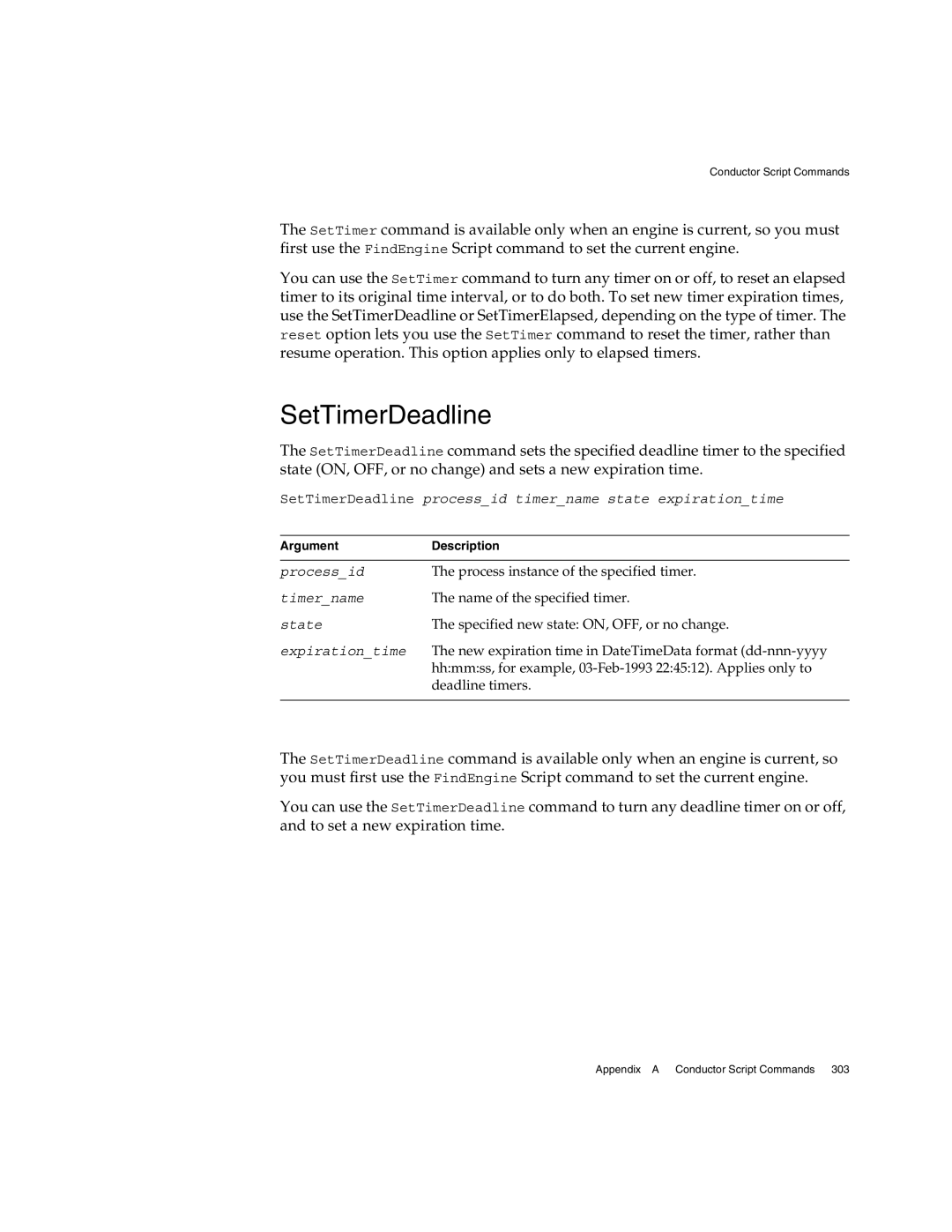Conductor Script Commands
The SetTimer command is available only when an engine is current, so you must first use the FindEngine Script command to set the current engine.
You can use the SetTimer command to turn any timer on or off, to reset an elapsed timer to its original time interval, or to do both. To set new timer expiration times, use the SetTimerDeadline or SetTimerElapsed, depending on the type of timer. The reset option lets you use the SetTimer command to reset the timer, rather than resume operation. This option applies only to elapsed timers.
SetTimerDeadline
The SetTimerDeadline command sets the specified deadline timer to the specified state (ON, OFF, or no change) and sets a new expiration time.
SetTimerDeadline process_id timer_name state expiration_time
Argument | Description |
|
|
process_id | The process instance of the specified timer. |
timer_name | The name of the specified timer. |
state | The specified new state: ON, OFF, or no change. |
expiration_time | The new expiration time in DateTimeData format |
| hh:mm:ss, for example, |
| deadline timers. |
|
|
The SetTimerDeadline command is available only when an engine is current, so you must first use the FindEngine Script command to set the current engine.
You can use the SetTimerDeadline command to turn any deadline timer on or off, and to set a new expiration time.
Appendix A Conductor Script Commands 303
